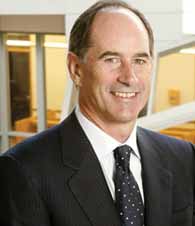It is for two reasons. The civil
foundation builds up over time in two
ways. First, governments pass laws
that compel corporations to behave in
ways that are viewed to be beneficial
for citizens of the jurisdiction. For
example, a government may pass a
law that requires better workplace
safety standards in order that fewer
workers get injured or killed on the
job. In general, if you compare
advanced economies versus
developing economies, there are
many more laws of this sort in
advanced economies. Why? Because
in developing economies,
governments don't want to impose on
corporations requirements that they
cannot afford and would potentially
drive them out of business. The same
holds for pollution laws. In many
developing countries, the pollution
control investments that advanced
country companies are required to
make would be unaffordable for the
developing country companies. For
this reason, the compliance side of the
civil foundation is, in general, deeper
in advanced than developing
countries—though there are
undoubtedly exceptions to this.
Second, corporations try
initiatives in the strategic frontier.
Some of them are successful and are
copied by rivals who observe the
success and in due course become
part of the civil foundation. For similar
reasons as above for governments,
Interview 5
corporations in developing countries
are typically not as well-positioned to
make speculative investments in the
strategic frontier so the flow of
practices from the strategic frontier to
the civil foundation are slower in
developing countries than advanced
ones, resulting in a shallower civil
foundation—choice quadrant.
Instrumental vs Intrinsic. Are they
mutually exclusive? Can they be
integrated to produce better results?
No they are not mutually exclusive.
Nor they are the same thing. A
corporation can take an initiative for
intrinsic reasons—leadership simply
thinks it is the right thing to do and it
will take the initiative regardless of
the consequences—and then find
much to its surprise that the
corporation gets an economic pay-off
for doing it.—i. e. it is also
instrumental. That is the integration
of instrumental and intrinsic, which
is the essence of the strategic frontier.
Alternatively, there may be no
economic pay-off, in which case it
will have been shown to be intrinsic
but not instrumental.
Are the CEOs responsible for civil
foundation (instrumental) or frontier
(intrinsic)? Which one do you think
can be better influenced by the CEO?
The buck stops at the CEO's desk so
he/she influences corporate behavior
and has the final say in all four
quadrants. Having said that, many
civil foundation decisions and
processes are farmed out to other
parts of the organization because
they lend themselves to
systemization of processes, while
frontier activities need the CEO's
more direct involvement to spur
action. So I would say that the CEO's
responsibility is to have rigorous and
thorough processes in place to
handle the foundation and to take
personal leadership for the frontier.
